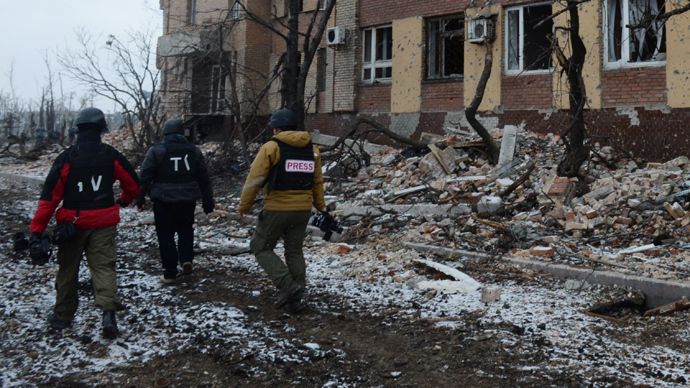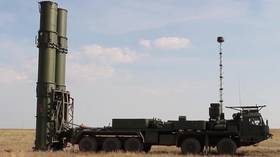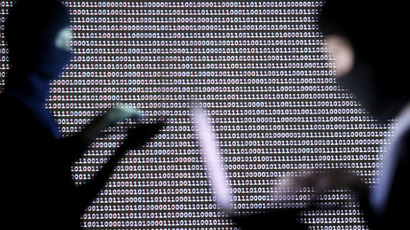Russian journalists detained in Kiev as Ukraine steps up censorship

Four Russian journalists were detained in Ukraine and ordered to return back to Moscow. Three of them were stopped when filming a Right Sector rally. The Russian Foreign Ministry has expressed outrage at the incident, calling it a “provocation.”
Ukraine’s Security Service (SBU) detained Channel One journalists Elena Makarova and Sergey Korenev, and NTV’s Andrey Grigoryev, who were in Kiev at the time. The SBU indicated that they will all be deported back to Russia and banned from entering Ukraine for the next five years.
Grigoryev is already back in Moscow, NTV reported. “I got detained right in Kiev’s downtown area while filming the rally, which included ultra-nationalist Right Sector members, football fans, and others who disagree with the direction the current government is taking,” Grigoryev said. “A few of the rally participants approached me and asked for my ID. I told them I would show my identification only to police, which is where they escorted me to.”
“Nothing was recorded at the police station...It looked like the decision [to deport] was made ahead of time,” he said.
A video has emerged showing the moment the journalist was apprehended.
Makarova said that 10 people with Right Sector stickers approached her and the cameraman. The individuals showed her SBU identification. When she asked to see their badges again, she was told: “If we show you the IDs again, you will be liquidated.” When Makarova inquired as to what they meant by that, the group replied: “It is best you don’t know.” She was then separated from her cameraman Korenev.
READ MORE: Ukraine's Security Service detains Russian journalists in Kiev, deny entry for 5 years
During the interrogations, she was asked what channel she was with and then told that her station “posed a threat to [Ukraine]” and that she would be deported.
Also on Wednesday, another NTV reporter, Inna Osipova, was refused entry into Ukraine after arriving at Kiev’s airpot. She was asked a lot of questions about the purpose of her trip during customs control and was eventually told “the reason for her trip could not be proven.” Her passport was confiscated and she is currently stuck inside the airport.
’Ukraine’s actions are a provocation’
The Russian Foreign Ministry described the detention as “a provocation towards Russian journalists, and a violation of Ukraine’s obligations to guarantee the safety of journalist.”
“We demand that our journalists be immediately released and the hunt for representatives of the Russian media be halted,” the ministry added. “We expect corresponding reaction from specialized international organizations, primarily OSCE Representative on the Freedom of the Media Dunja Mijatovic, to new unlawful acts by the Ukrainian authorities.”
The incident comes after the SBU issued recommendations to strip more than 100 Russian media outlets of accreditation on February 21. Earlier in the month, 239 Ukrainian lawmakers voted in favor of suspending Russian journalists' accreditation until the conflict in eastern Ukraine ends.
The list includes TASS, Rossiya Segodnya, and all Russian TV channels except Dozhd, according to government spokesperson Yelena Gitlyanskaya.
'Silencing opposing voices’
Ukraine is justifying its actions by citing new legislation, professor of political science at the University of Rhode Island Nicolai Petro told RT. “It’s an attempt to achieve total information control – the ability to exclude all dissident voices, partly in Ukraine, from getting through to Ukrainian citizens.”
Ukraine is taking censorship to a whole new level, Petro explained. “In the West, the wartime precedent is that censorship can only occur in situations which directly involve military operations. The Ukrainian government is going far beyond that – to essentially silence opposition voices which are being silenced at home and use the Russian media to get back inside the country.”
The response in the West is likely to be “very muted,” the professor noted, “because this is an issue they would prefer not to deal with.”
But such attempts are usually not very successful. “The politicians tend to underestimate the ability of people to go around the restrictions to get information from a wide variety of sources. These attempts are ultimately bound to fail,” Petro said.
READ MORE: Facebook frontline: Kiev calls up 'online army' amid information war
In addition to limiting freedom of expression inside Ukraine, Kiev announced this week that it is joining the information war by creating an 'online army,' according to the Information Policy Ministry.













